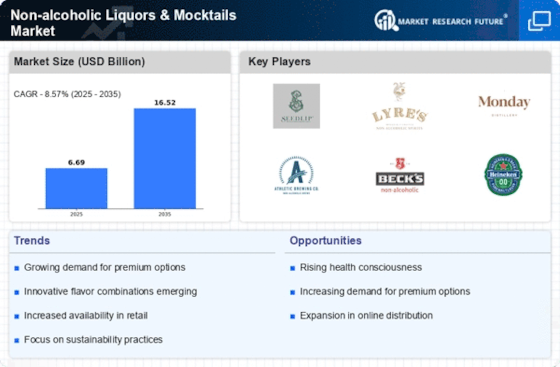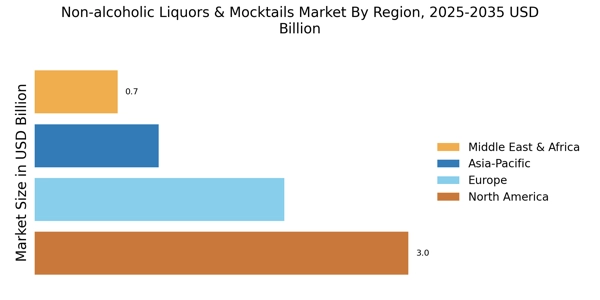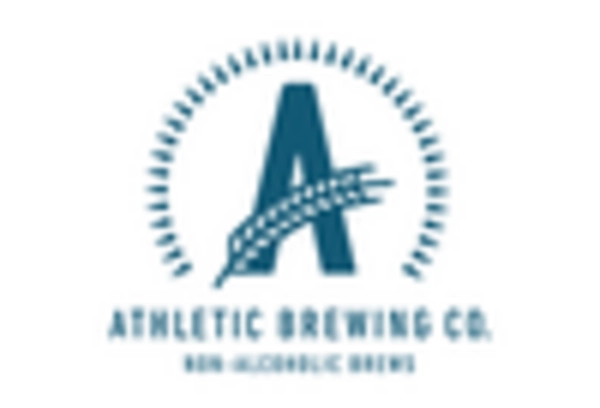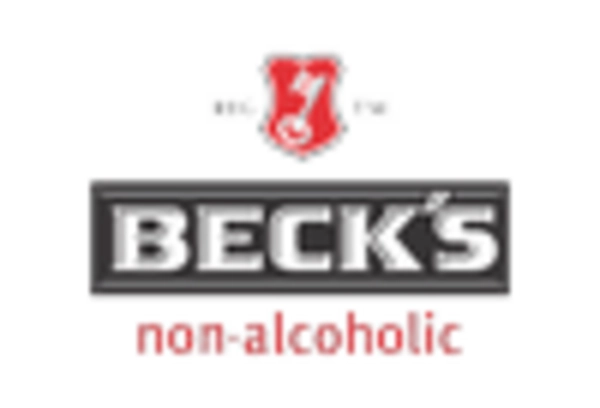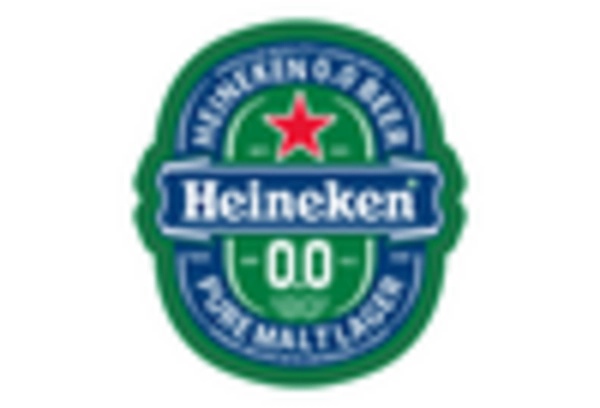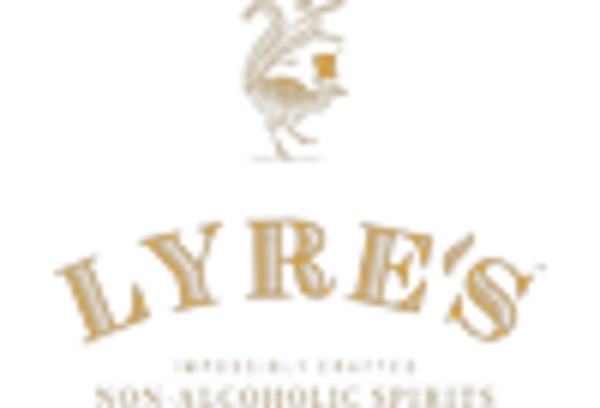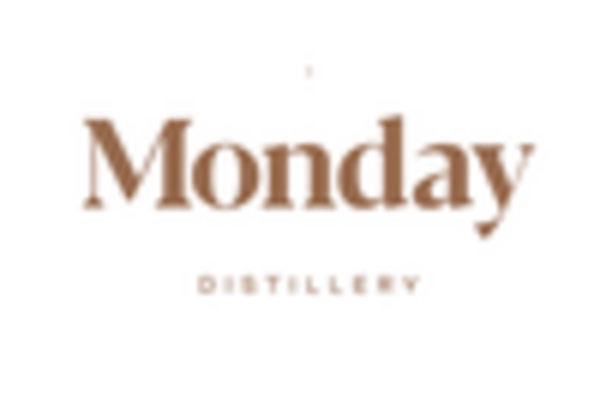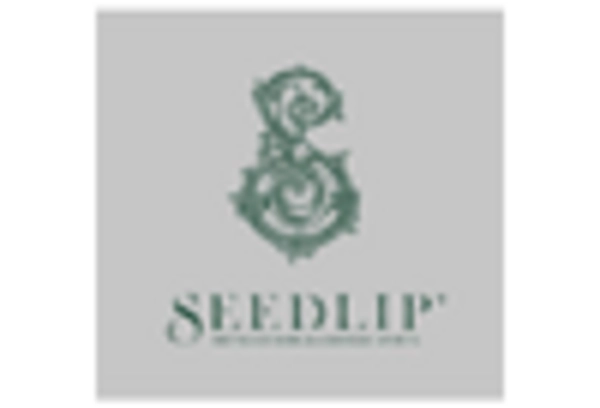Health Consciousness
The increasing awareness of health and wellness among consumers appears to be a primary driver for the Non-alcoholic Liquors & Mocktails Market. As individuals become more health-conscious, they are actively seeking alternatives to traditional alcoholic beverages. This trend is reflected in the rising demand for non-alcoholic options, which are perceived as healthier choices. According to recent data, the non-alcoholic beverage sector has experienced a growth rate of approximately 7% annually, indicating a shift in consumer preferences. The Non-alcoholic Liquors & Mocktails Market is thus positioned to benefit from this health-driven demand, as consumers opt for beverages that align with their lifestyle choices, including lower calorie counts and reduced alcohol consumption.
Changing Demographics
Demographic shifts are influencing the Non-alcoholic Liquors & Mocktails Market in profound ways. Younger generations, particularly millennials and Gen Z, are increasingly opting for non-alcoholic beverages due to lifestyle choices and changing attitudes towards alcohol consumption. This demographic is more inclined to seek out non-alcoholic options that align with their values of health, sustainability, and social responsibility. Market analysis indicates that this age group represents a significant portion of the consumer base for non-alcoholic products, with a projected growth rate of 10% in this segment. Consequently, the Non-alcoholic Liquors & Mocktails Market is poised to capitalize on these demographic trends, as brands tailor their offerings to meet the preferences of younger consumers.
Social Trends and Acceptance
The evolving social landscape plays a crucial role in shaping the Non-alcoholic Liquors & Mocktails Market. As societal norms shift, there is a growing acceptance of non-alcoholic beverages in social settings. This change is particularly evident among younger demographics, who are increasingly prioritizing moderation and mindful drinking. The rise of social media has further amplified this trend, as influencers and brands promote non-alcoholic options as trendy and sophisticated. Market data suggests that the demand for mocktails and non-alcoholic spirits has surged, with sales increasing by over 20% in recent years. This indicates that the Non-alcoholic Liquors & Mocktails Market is likely to continue thriving as consumers embrace these beverages as viable alternatives to traditional alcoholic drinks.
Innovative Product Development
Innovation within the Non-alcoholic Liquors & Mocktails Market is a significant driver of growth. Manufacturers are increasingly focusing on creating unique and diverse product offerings that cater to a wide range of consumer preferences. This includes the introduction of craft non-alcoholic spirits, flavored mocktails, and ready-to-drink options that appeal to various taste profiles. The market has seen a notable increase in the number of brands launching non-alcoholic alternatives, with some reports indicating a 30% rise in new product introductions. This innovation not only attracts health-conscious consumers but also those seeking novel drinking experiences. As a result, the Non-alcoholic Liquors & Mocktails Market is likely to expand further, driven by the continuous evolution of product offerings.
Regulatory Support and Initiatives
Regulatory frameworks and initiatives aimed at promoting healthier lifestyles are emerging as a key driver for the Non-alcoholic Liquors & Mocktails Market. Governments and health organizations are increasingly advocating for reduced alcohol consumption, which has led to a supportive environment for non-alcoholic beverage producers. Initiatives such as public health campaigns and educational programs about the benefits of moderation are encouraging consumers to explore non-alcoholic options. This regulatory support is reflected in the growing availability of non-alcoholic products in retail and hospitality sectors. As a result, the Non-alcoholic Liquors & Mocktails Market is likely to experience sustained growth, bolstered by favorable policies that promote healthier drinking habits.


